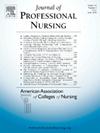A descriptive phenomenological study of postgraduate nursing students' experiences with ChatGPT
IF 2.9
3区 医学
Q1 NURSING
引用次数: 0
Abstract
Background
Postgraduate education plays a critical role in preparing nurses for advanced practice and leadership roles. Although ChatGPT has recently emerged as a potential tool in education, its integration into postgraduate nursing education remains underexplored. Existing studies largely focus on undergraduate settings. This study investigates the interactions and experiences of postgraduate nursing students (PGNSs) using ChatGPT, providing insights for nursing educators.
Aim
To explore the experiences of PGNSs enrolled in Master's and Doctoral programs who utilized ChatGPT to prepare seminar assignments.
Design
A descriptive phenomenological design was adopted. The study involved 13 PGNSs enrolled in the same course. Data were collected through in-depth, semi-structured online interviews conducted between April and October 2024. Data analysis followed Colaizzi's method.
Results
Analysis revealed three overarching themes and nine thematic clusters. Participants identified a range of opportunities associated with ChatGPT, including time-saving and support for learning. However, they also reported uncertainties regarding its ethical use and application. Furthermore, participants shared practical recommendations for integrating ChatGPT into nursing education.
Conclusion
ChatGPT is poised to become a valuable tool in postgraduate nursing education. To support this integration, educators must understand how students interact with AI tools like ChatGPT and address related pedagogical and ethical concerns. Alternative assessment strategies and targeted guidance should be developed collaboratively by educators and experts to ensure effective and responsible use.
护理研究生ChatGPT体验的描述现象学研究
研究生教育在为护士准备高级实践和领导角色方面起着至关重要的作用。尽管ChatGPT最近作为一种潜在的教育工具出现,但其与研究生护理教育的整合仍未得到充分探索。现有的研究主要集中在本科设置。本研究调查护理研究生(PGNSs)使用ChatGPT的互动和体验,为护理教育工作者提供见解。目的探讨在硕士和博士课程中使用ChatGPT准备研讨会作业的PGNSs的经验。设计采用描述性现象学设计。这项研究涉及13名参加同一课程的PGNSs。数据是在2024年4月至10月期间通过深度、半结构化的在线访谈收集的。数据分析遵循Colaizzi的方法。结果分析揭示了三个总体主题和九个主题群。参与者确定了与ChatGPT相关的一系列机会,包括节省时间和支持学习。然而,他们也报告了其伦理使用和应用的不确定性。此外,与会者还分享了将ChatGPT纳入护理教育的实用建议。结论chatgpt有望成为研究生护理教育的重要工具。为了支持这种整合,教育工作者必须了解学生如何与ChatGPT等人工智能工具互动,并解决相关的教学和道德问题。教育工作者和专家应共同制定替代评估战略和有针对性的指导,以确保有效和负责任的使用。
本文章由计算机程序翻译,如有差异,请以英文原文为准。
求助全文
约1分钟内获得全文
求助全文
来源期刊
CiteScore
4.80
自引率
8.00%
发文量
153
审稿时长
52 days
期刊介绍:
The Journal will accept articles that focus on baccalaureate and higher degree nursing education, educational research, policy related to education, and education and practice partnerships. Reports of original work, research, reviews, insightful descriptions, and policy papers focusing on baccalaureate and graduate nursing education will be published.

 求助内容:
求助内容: 应助结果提醒方式:
应助结果提醒方式:


